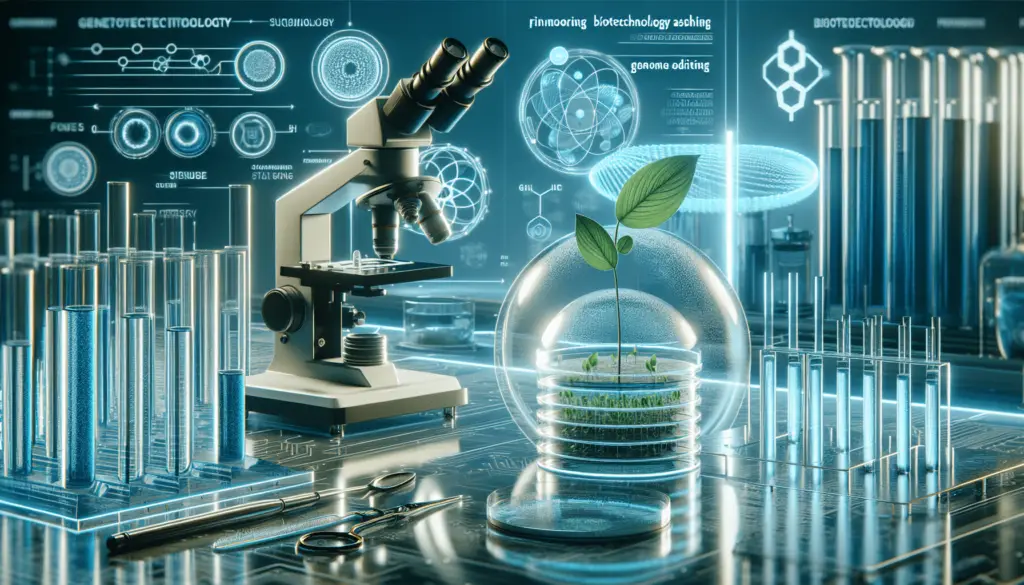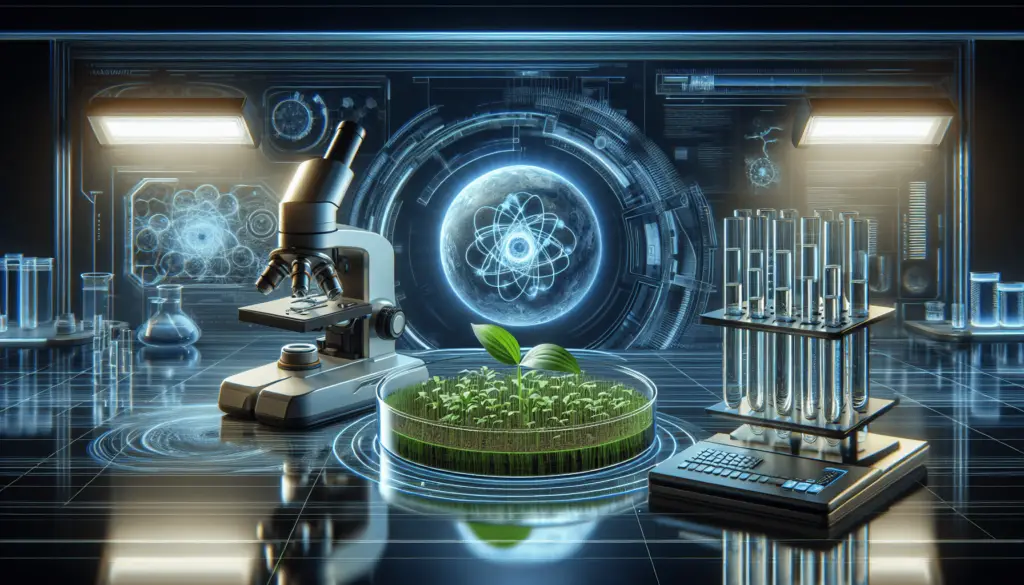Are you curious about how biotechnology and gene editing can impact sustainability efforts in prepping?

The Basics of Biotechnology
Biotechnology involves the manipulation of living organisms to develop products and processes that benefit society. This field encompasses various disciplines, such as genetics, molecular biology, and biochemistry, to create innovative solutions for a wide range of industries.
Understanding Genetic Engineering
Genetic engineering is a key component of biotechnology that involves the modification of an organism’s genetic material using advanced techniques. By altering specific genes, scientists can enhance desirable traits or suppress undesirable characteristics in plants, animals, and microorganisms.
Applications of Biotechnology in Prepping
Biotechnology has revolutionized the way we approach sustainable prepping by offering innovative solutions to food production, water purification, and waste management.
Sustainable Food Production
With the world’s population projected to reach 9.7 billion by 2050, food security is a growing concern. Biotechnology plays a crucial role in enhancing crop yields, developing drought-resistant plants, and improving the nutritional content of staple foods.
Water Purification Technologies
Access to clean and safe drinking water is essential for survival during emergencies or natural disasters. Biotechnological advancements have led to the development of efficient water purification technologies that remove contaminants and pathogens, ensuring a sustainable source of potable water.
Waste Management Solutions
Proper waste management is vital for maintaining a clean and healthy environment. Biotechnology offers sustainable solutions for waste treatment and recycling, reducing the impact of human activities on ecosystems and natural resources.
Gene Editing for Sustainability
Gene editing technologies, such as CRISPR-Cas9, have revolutionized the field of genetics by enabling precise modifications to an organism’s DNA. This powerful tool has significant implications for sustainability efforts in prepping.
CRISPR-Cas9 Technology
CRISPR-Cas9 is a revolutionary gene editing tool that allows scientists to make targeted modifications to specific genes within an organism’s DNA. This technology has immense potential for enhancing food security, developing disease-resistant crops, and combating climate change.
Environmental Conservation
Gene editing can contribute to environmental conservation by restoring endangered species, mitigating the impact of invasive species, and preserving biodiversity in ecosystems. These applications have the potential to address pressing environmental challenges and promote sustainable practices in prepping.
Ethical and Regulatory Considerations
While biotechnology and gene editing offer promising solutions for sustainable prepping, it is essential to consider the ethical and regulatory implications of these technologies.
Ethical Dilemmas
The use of genetic engineering in prepping raises ethical concerns regarding the potential consequences of modifying organisms, altering ecosystems, and impacting biodiversity. Ethical frameworks and principles play a crucial role in guiding responsible decision-making in the field of biotechnology.
Regulatory Frameworks
Regulatory agencies play a vital role in overseeing the safety and ethical standards of biotechnological products and processes. Establishing robust regulatory frameworks ensures that biotechnology is used responsibly and ethically in prepping practices.

Future Prospects and Challenges
The future of prepping lies in harnessing the potential of biotechnology and gene editing to create sustainable solutions for food security, water purification, and waste management. However, this transformative journey comes with its own set of challenges and uncertainties.
Technological Advancements
Continued advancements in biotechnology and gene editing technologies will drive innovation and unlock new possibilities for sustainable prepping practices. From precision agriculture to personalized medicine, the future holds immense potential for leveraging these tools to address global challenges.
Socioeconomic Impacts
The adoption of biotechnological solutions in prepping may have significant socioeconomic implications, impacting employment opportunities, income distribution, and access to essential resources. It is essential to address these disparities and ensure equitable access to the benefits of biotechnology for all individuals.
Public Awareness and Education
Raising public awareness and fostering a better understanding of biotechnology and gene editing are key to gaining widespread acceptance and support for sustainable prepping practices. Education initiatives and outreach programs play a critical role in engaging communities and promoting informed decision-making.
Conclusion
In conclusion, biotechnology and gene editing hold immense potential for transforming sustainability efforts in prepping. By harnessing the power of science and technology, we can create innovative solutions to address pressing challenges in food security, water purification, and waste management. Despite the ethical and regulatory considerations, the future of prepping is bright with possibilities for a more sustainable and resilient future.
